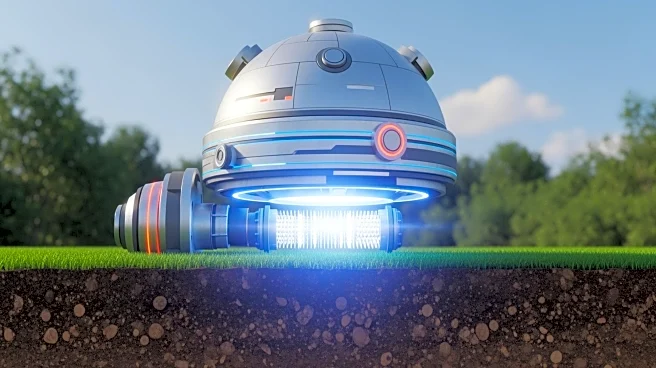What's Happening?
Scientists from the Chinese Academy of Sciences have introduced a groundbreaking method to address soil pollution using self-cleaning reactors. This innovative approach utilizes microbes and iron minerals
to efficiently remove toxic substances from contaminated soil. The process is designed to be sustainable, avoiding the use of heavy machinery or harmful chemicals. The research suggests that this method could potentially restore areas such as farmland, wetlands, and industrial zones that have been deemed too polluted for recovery.
Why It's Important?
The development of self-cleaning soil reactors represents a significant advancement in environmental technology, offering a sustainable solution to soil pollution. This method could have profound implications for agriculture and land management, particularly in areas suffering from heavy contamination. By potentially restoring polluted lands, this technology could increase arable land availability, benefiting food production and ecosystem health. Additionally, it may reduce the reliance on chemical-based soil remediation methods, promoting a more eco-friendly approach to environmental restoration.
What's Next?
The next steps for this technology involve further testing and refinement to ensure its effectiveness across various types of contaminated soils. If successful, it could lead to widespread adoption in regions facing severe soil pollution challenges. Stakeholders such as environmental agencies, agricultural sectors, and policymakers may explore partnerships to implement this technology on a larger scale. The potential for international collaboration could also arise, as countries seek sustainable solutions to global environmental issues.
Beyond the Headlines
This development highlights the growing importance of nature-based solutions in addressing environmental challenges. The use of microbes and minerals for soil cleanup reflects a shift towards leveraging natural processes for sustainable development. It also raises ethical considerations regarding the management of contaminated lands and the prioritization of eco-friendly technologies in industrial practices.









